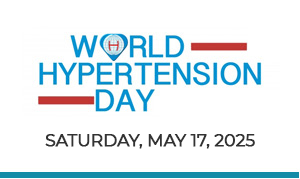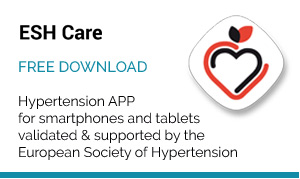Hypertension 2008
In recent years (if ever) there hasn’t been a lot of encouraging health news for the obese. While there may be specific pros and cons related to the health consequences of variables such as age, race, gender, and even dietary habits (chocolate and wine come immediately to mind), there has been a dearth of positive news regarding just about any aspect of obesity.
However, there is good news for patients requiring revascularization. As these patients continue to work towards losing weight – still a very good idea – there is evidence of an obesity paradox: a neutral or beneficial association between obesity and mortality postcoronary revascularization. This has been suggested by a number of studies, most recently in a meta-analysis evaluating short- and long-term all-cause mortality post-coronary artery bypass grafting (CABG) and post-PCI. (1)
This is surprising given that overweight and obesity are often assumed to be risk factors for postprocedural mortality in patients with coronary artery disease (CAD). Like the earlier studies, data presented at the ESH Young Investigator Initiative Group Workshop suggest that obese patients with pre-existing stable ischemic heart disease or acute coronary syndrome do not have an increased long-term mortality risk following PCI compared to normal-weight patients.
University of Glasgow investigators (presenter: Claire Hastie, MD, on behalf of the Scottish Coronary Revascularisation Register Steering Committee) used a renowned general population survey and the Scottish Coronary Revascularization Register (SCRR). The Renfrew/Paisley general population cohort is one of the largest epidemiological studies ever undertaken; begun in 1972, it includes data on 15,406 individuals (age 45-64 years) residing in the west of Scotland. In addition, revascularization data were available for 5,076 patients who underwent elective, primary PCI. Follow-up was censored at 5 years and subgroup analysis was performed by hypertension status.
In both the Renfrew/Paisley and SCRR, there was a U-shaped survival curve from normal weight (BMI 19-25) to obese (>30), with those individuals with a BMI of 27.5-30 showing the lowest long-term risk in the presence of ischemic heart disease. In the SCRR data, the lowest survival was evident in the normal-weight group. The overweight and obese were significantly more likely to be younger, but they were also more likely to have diabetes. Also, there was a higher proportion of females at both ends of the weight spectrum (underweight and obese). In both data sets, the highest mortality was among those who were underweight. When the data were analyzed by blood pressure levels, hypertension was an additional risk factor but it did not change the risk profile.
The investigators noted that further studies are needed to understand the mechanism involved, particularly as primary PCI is becoming more common as the preferred treatment for myocardial infarction.
References:
- Oreopoulos A, Padwal R, Norris CM, Mullen JC, Pretorius V, Kalantar-Zadeh K. Effect of obesity on short- and long-term mortality postcoronary revascularization: a meta-analysis. Obesity (Silver Spring) 2008;16:442-50.






